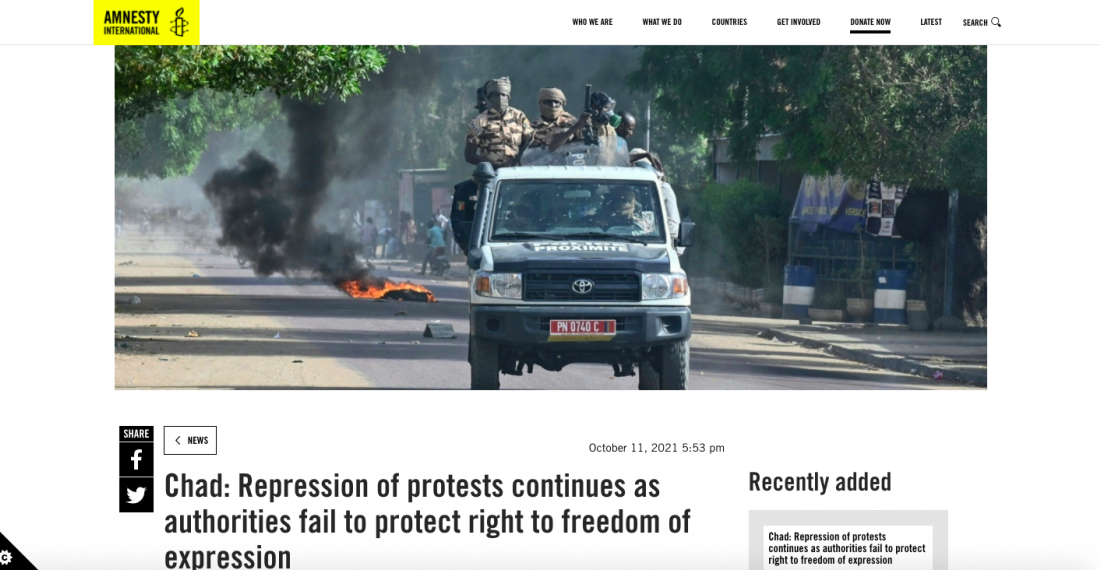Amnesty International urged the ruling junta in Chad to “end this campaign of intimidation against critical voices” and to “protect the rights to freedom of expression”, two days after demonstrations were dispersed by the police using tear gas. Saturday's rallies, at the call of Wakit Tama - a platform of opposition parties and members of civil society calling for civilian power - had been banned by the authorities because of the risk of “disturbances to the public order”.
“The crackdown on this weekend’s protest is the latest in a series of blatant restrictions on the rights to freedom of expression and freedom of peaceful association we have documented for years in Chad,” Abdoulaye Diarra, an Amnesty International Central Africa researcher, said.
Several hundred people took to the streets of the capital on Saturday. “Security forces took over the main streets in the capital N’Djamena and fired tear gas, injuring several people, and arresting dozens of demonstrators who have been released on the same day”, Diarra added.
According to the human rights NGO, Internet access was slowed down during the protest. “On the morning of the protest, text messages and Internet networks were reportedly slowed down for hours in some areas of N’Djamena, confirming the link between disruptions in Internet access and moments of political contestation we have been observing over the past five years in the country.”
Mahamat Idriss Déby has been leading a Transitional Military Council (TMC) of 15 generals since the death of his father, Idriss Déby Itno, who ruled the country for 30 years before perishing at the front in a fight against rebels on 19 April 2021. This transitional governance, which risks to last longer than the 18 months period supposed to lead to “free and fair” elections, has been criticised by civil society organisations and opposing parties for months.







